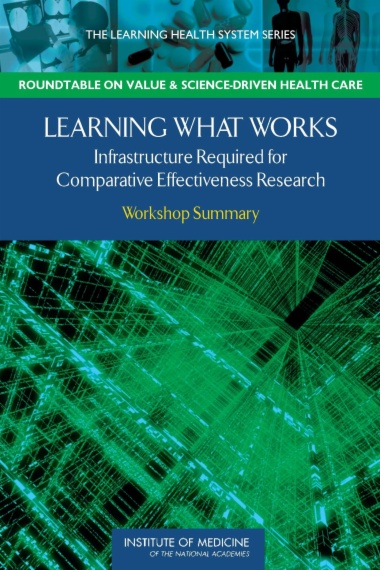

It is essential for patients and clinicians to have the resources needed to make informed, collaborative care decisions. Despite this need, only a small fraction of health-related expenditures in the United States have been devoted to comparative effectiveness research (CER). To improve the effectiveness and value of the care delivered, the nation needs to build its capacity for ongoing study and monitoring of the relative effectiveness of clinical interventions and care processes through expanded trials and studies, systematic reviews, innovative research strategies, and clinical registries, as well as improving its ability to apply what is learned from such study through the translation and provision of information and decision support.
As part of its Learning Health System series of workshops, the Institute of Medicine's (IOM's) Roundtable on Value & Science-Driven Health Care hosted a workshop to discuss capacity priorities to build the evidence base necessary for care that is more effective and delivers higher value for patients. Learning What Works summarizes the proceedings of the seventh workshop in the Learning Health System series. This workshop focused on the infrastructure needs—including methods, coordination capacities, data resources and linkages, and workforce—for developing an expanded and efficient national capacity for CER. Learning What Works also assesses the current and needed capacity to expand and improve this work, and identifies priority next steps.
Learning What Works is a valuable resource for health care professionals, as well as health care policy makers.